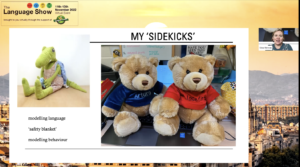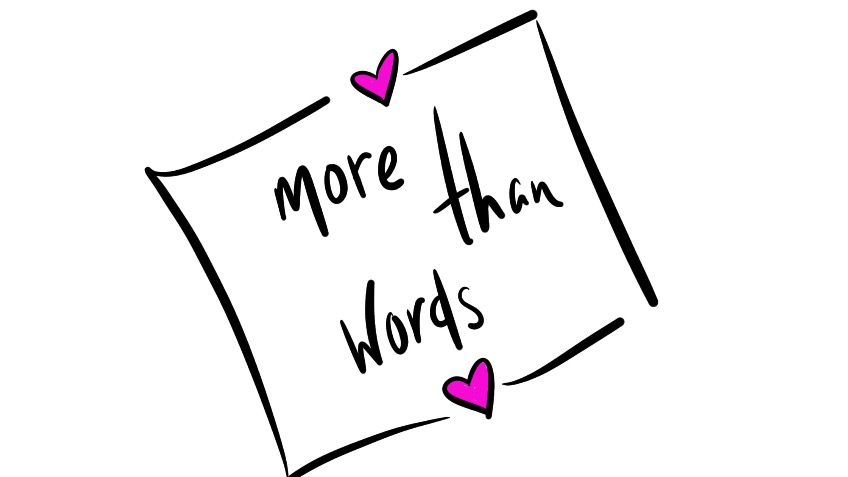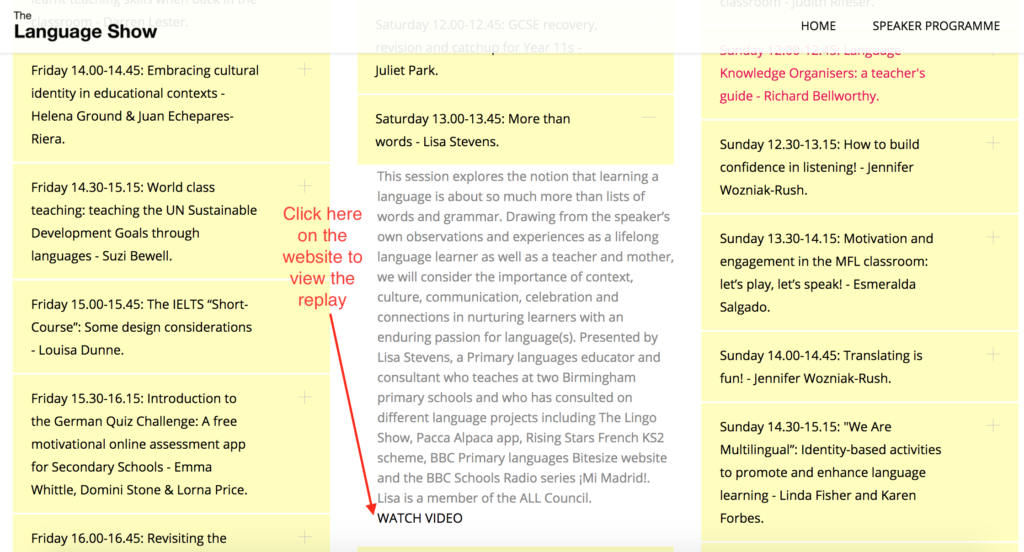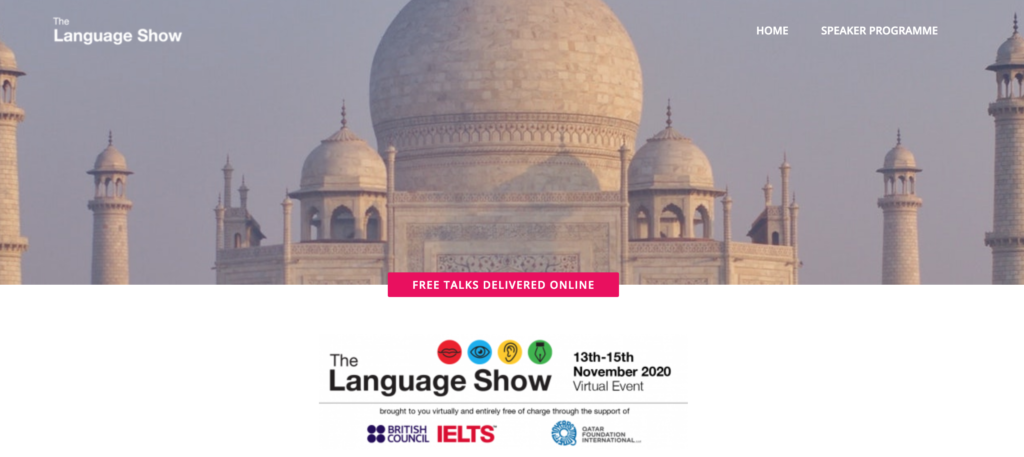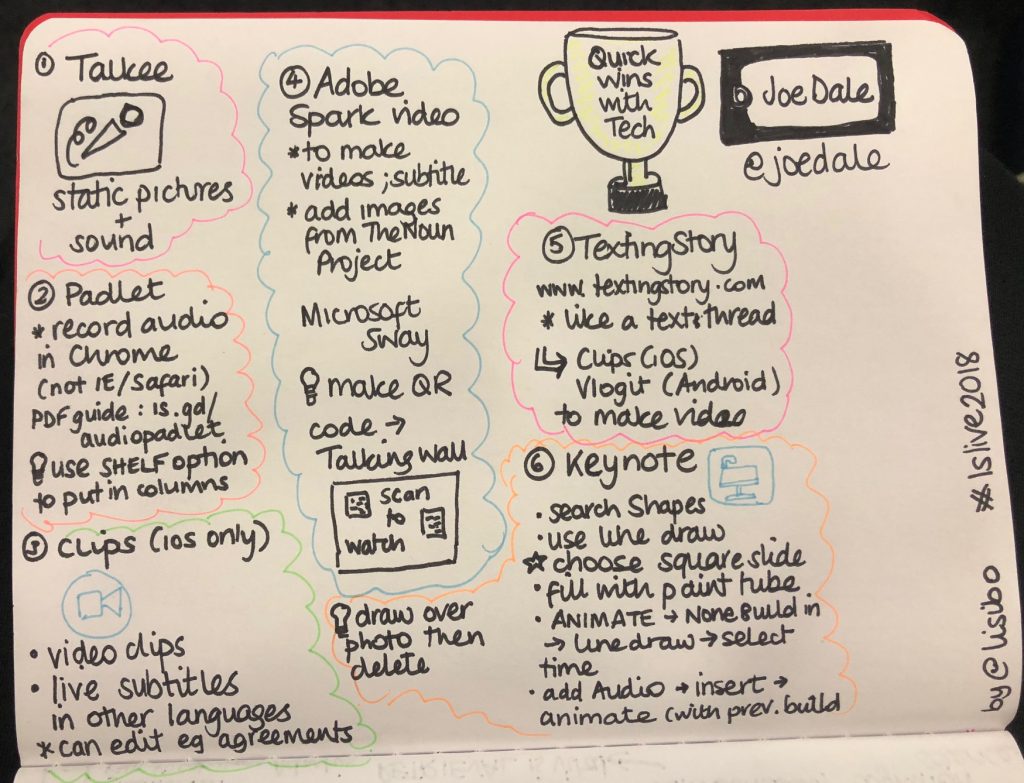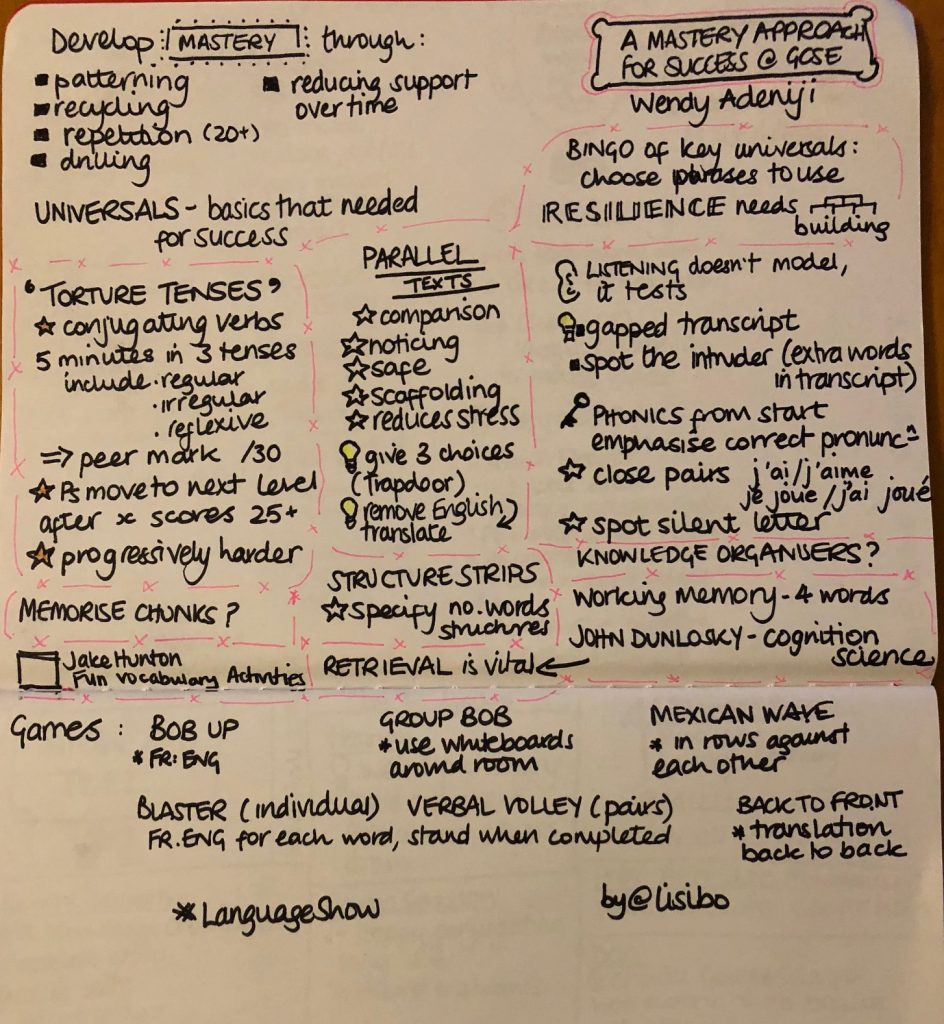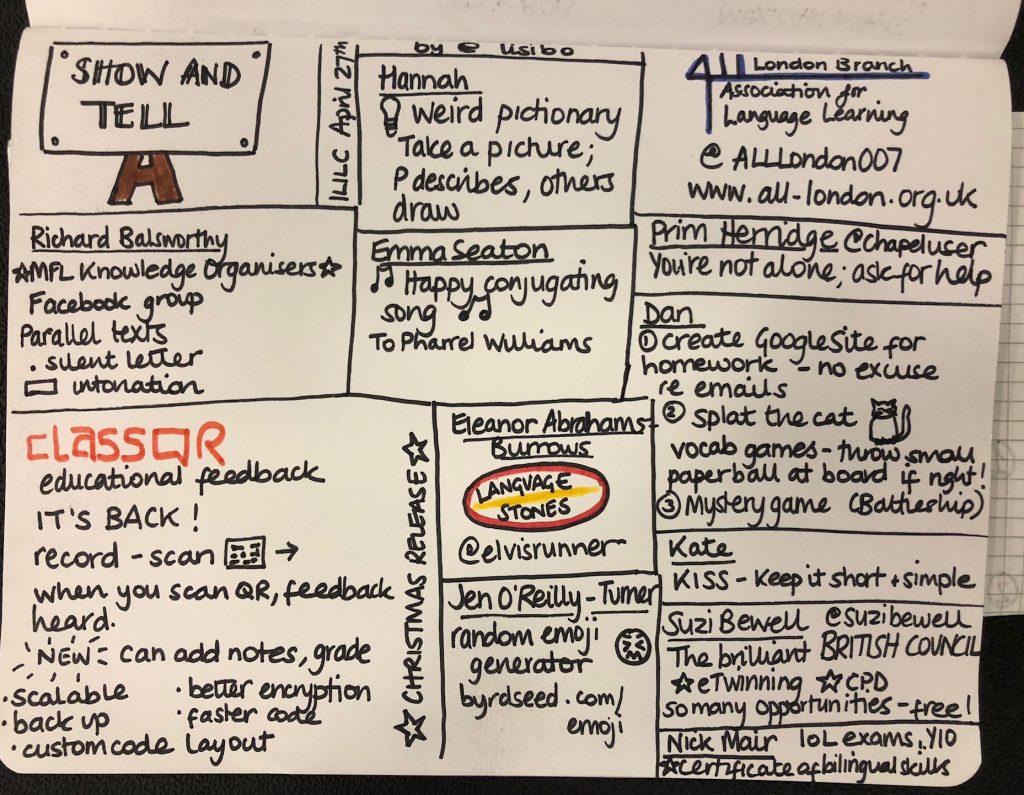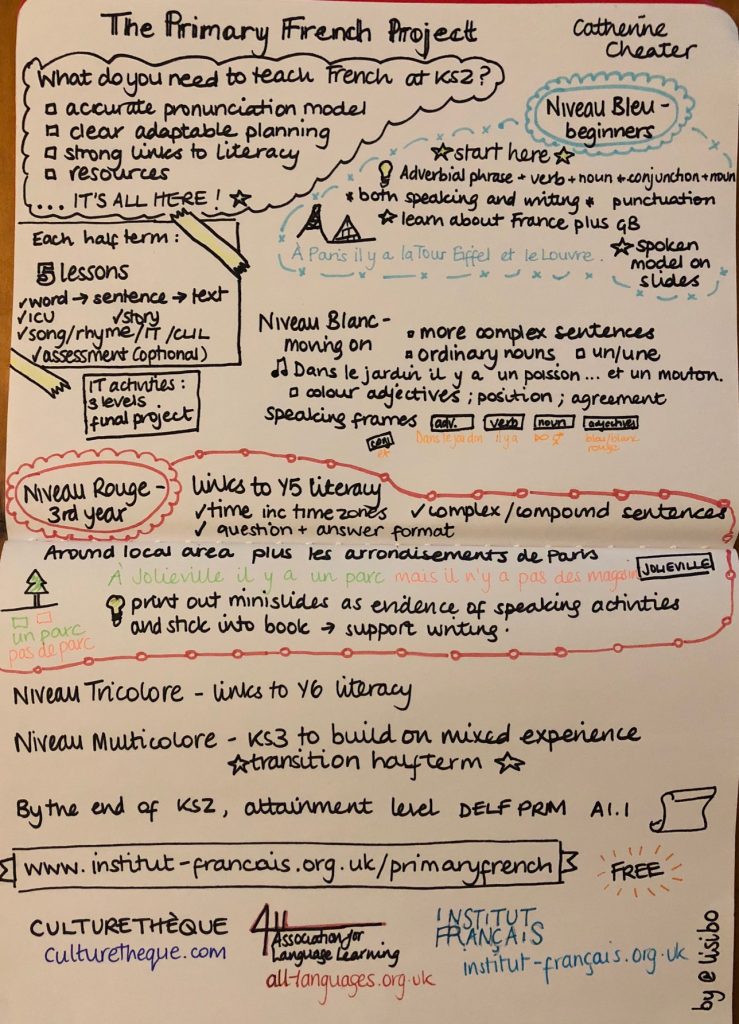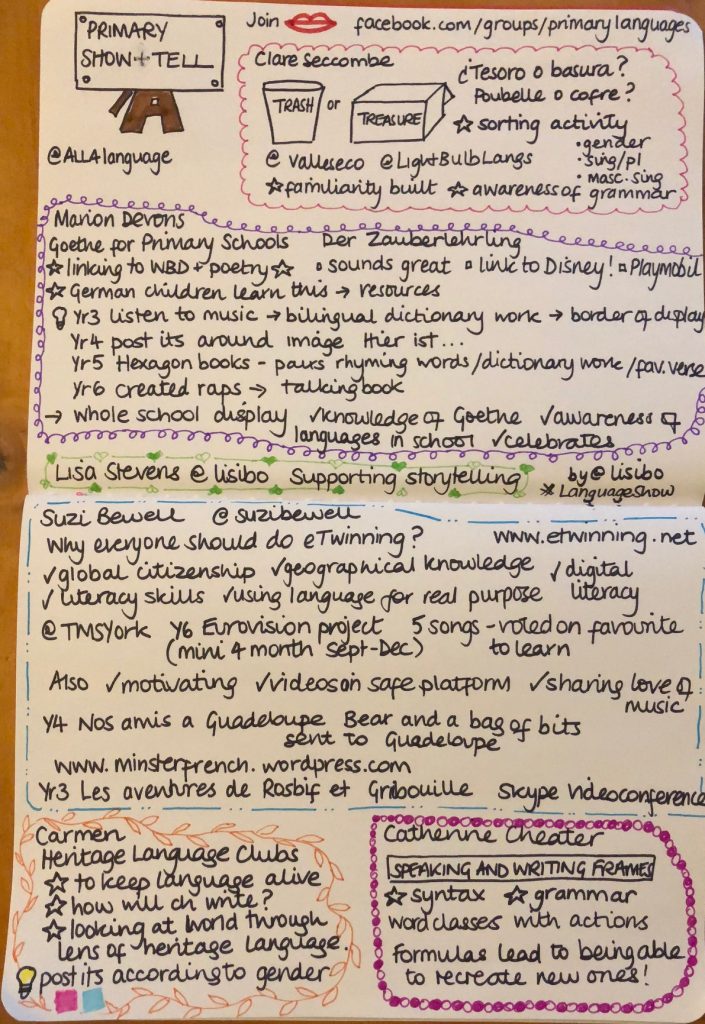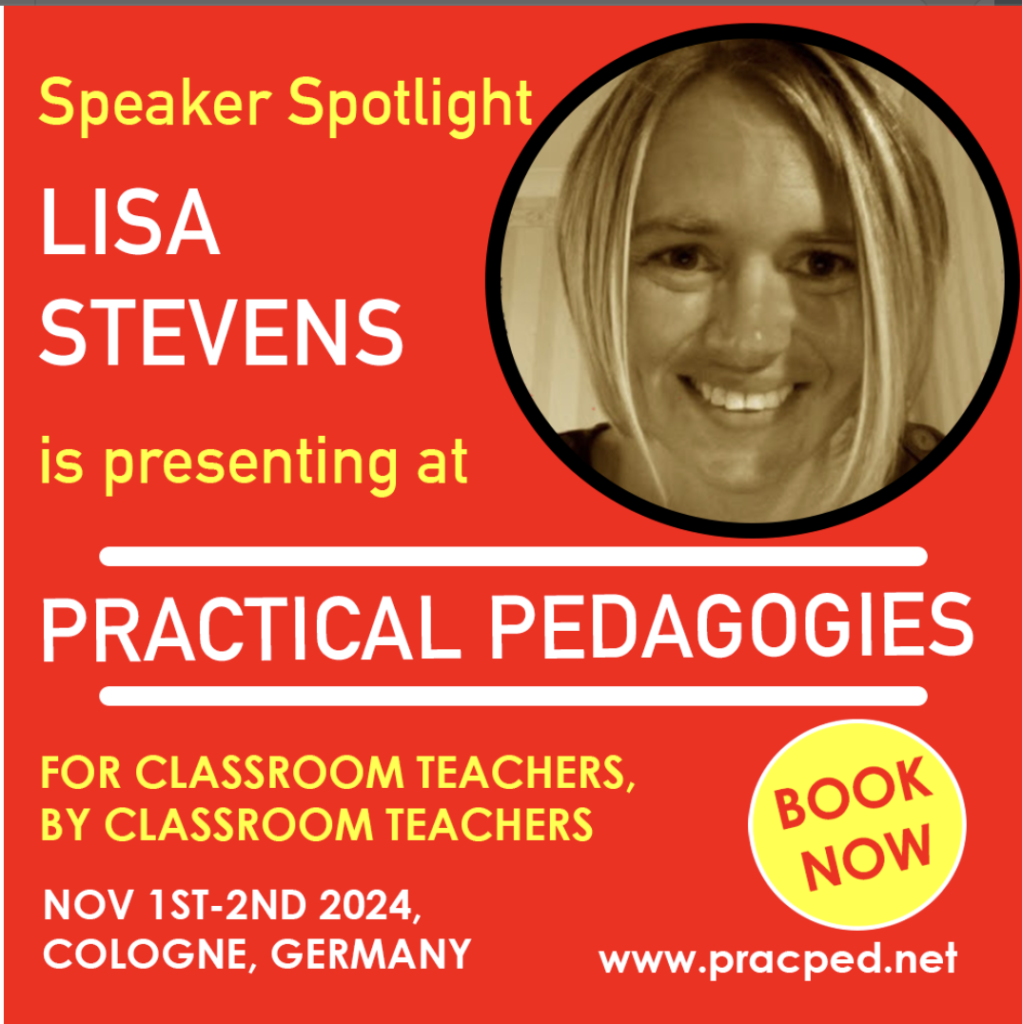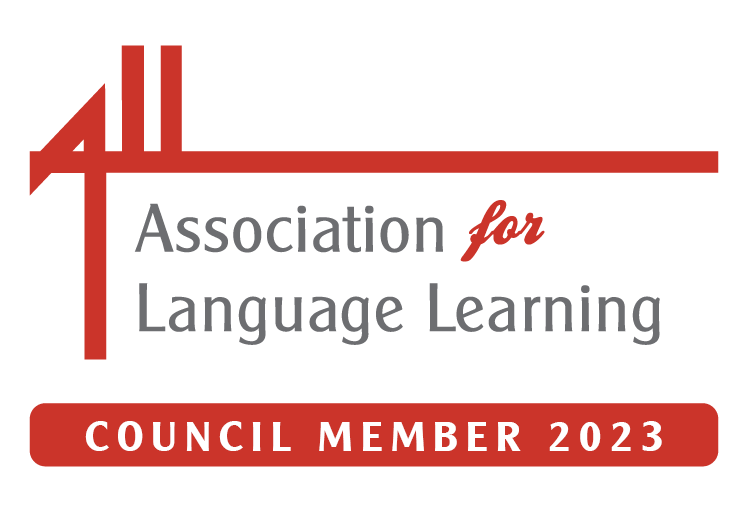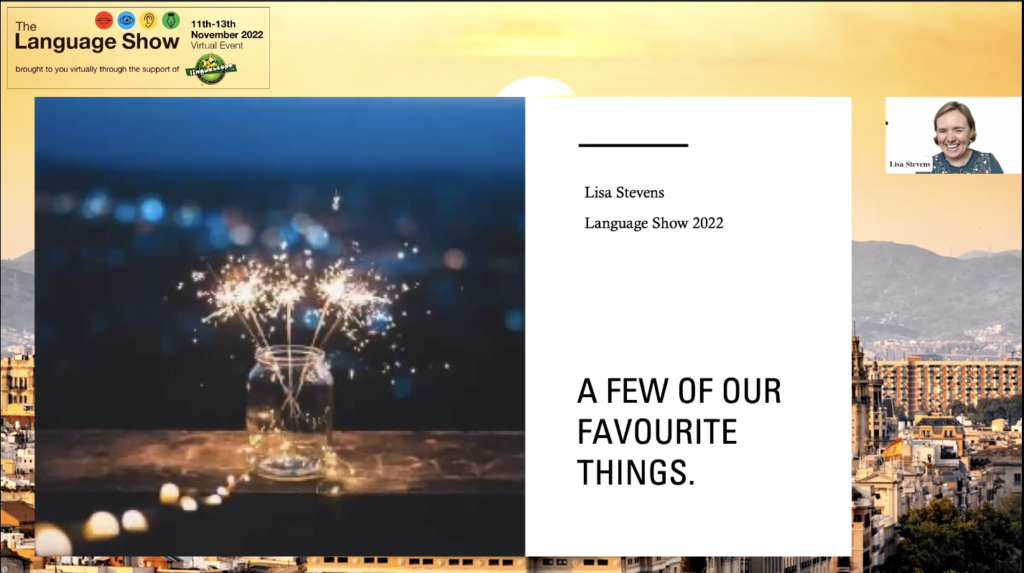
Today at The Language Show it was my pleasure to deliver a presentation entitled A few of our favourite things.
During a packed 45 minutes I highlighted as many of the things that my pupils say they enjoy as I could. I do talk very fast but as is often the case, I had far more to say than there was time to share.
As promised you can find my slides below including links to things I mentioned such as the songs and games. If you have any questions, please feel free to post them in the comments below. And if you bought a ticket, you can access my presentation (along with many many more!) on catch up. I’m looking forward to doing just that over the next week or so.
Clickable links from presentation –
Slide 2 Spanish video
Slide 7 Spanish games
Slide 8 Youtube playlist including minibook tutorial
Slide 10 Miguel y Sabo video
Slide 12 Isabella Springmuhl Tejada – Intro – https://youtu.be/ZypUTsEh1-o Sp/Eng explanation https://youtu.be/nbwc2DYofkI and intervie https://youtu.be/TH3g1qe_kko
Slide 15 Yummy Yucky PPT
Slide 17 Songs (clockwise from top left)- Hola a todos Los días Uno dos tres choc ¿Te gusta el helado? No se habla de Bruno Vuela vuela Hola ¿Cómo estás? Los partes del cuerpo
Slide 18 Hello to all the children of the world Hands of the World -How far The Hello Song
Slide 22 Strange animals post
Slide 24 Señor Cabeza Naranja slideshare Storymaking slideshare
Slide 39 Tweets https://twitter.com/whcps/status/1446082787786756096?s=20 https://twitter.com/whcps/status/1446082787786756096?s=20 https://twitter.com/whcps/status/1446100113462546442?s=20
Slide 47 Lost Worlds Language Portraits ISA Padlet https://padlet.com/nocilla13/ISA WBD Padlet https://padlet.com/MrsWoodDHT/zfwygb46bn62jf6u Portfolio https://padlet.com/nocilla13/spport21
Slide 49 – Around the World in 80 Books Padlet
Slide 52 Hungry Caterpillar in five languages
Slide 54 Erasmus + blog
Slide 56 Christmas research
Things to add –
- Many of my props come from IKEA (I blog about my visits quite often!)
- The games website I mentioned is https://www.spanish-games.net/
- For tutorials on how to make minibooks (and other things!) have a look at Clare Seccombe’s playlist
- I use the LightBulb Languages scheme of work which can be found here
- The latest issue (and all past ones!) of Writeaway can be found here The next deadline for submissions is 9th December.
I ran out of time to share about our amazing Erasmus+ project that has certainly been one of the children at WCPS’s favourite things over the last three years. Hopefully one day I’ll get to present a whole session on it (or record one of my own!) but until then, please have a look at the project blog from the point of view of our school here and the whole project blog (which was written by the Greek partners) here.
